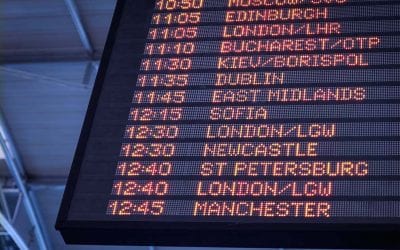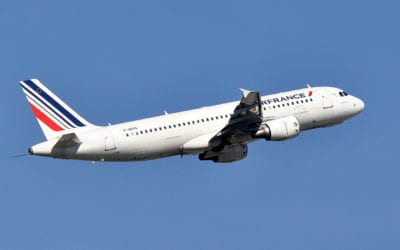When airlines cancel flights passengers get refunds in cash

… passengers should be refunded promptly when their scheduled flights are canceled or significantly delayed. Airlines have long provided such refunds, including during periods when air travel has been disrupted on a large scale, such as the aftermath of the September 11, 2001 attacks, Hurricane Katrina, and presidentially declared natural disasters.
When an airline changes a passenger’s itinerary, the passenger can decide whether or not to accept those changes. In flight-cancellation situations, the passenger is in command of their own fate. Travelers need to know that they have options provided through the contract of carriage. If a passenger chooses to cancel their booking, they will be hit with extra fees and only receive an airline credit (with strings attached).
Significantly delayed flights must be refunded if passengers so choose
Airlines must also provide refunds when a flight is “significantly delayed” from its original schedule. In that case, the passenger can choose not to accept schedule changes. Refunds must be made to passengers in cash within 7 business days if paid for by credit card. The airfare and fee refund must be made within 20 business days when paid for by other means such as by check or cash.
Carriers have a longstanding obligation to provide a prompt refund to a ticketed passenger when the carrier cancels the passenger’s flight or makes a significant change in the flight schedule and the passenger chooses not to accept the alternative offered by the carrier. (Enhancing Airline Passenger Protections, 76 Fed. Reg. 23110-01, at 23129 [Apr. 25, 2011])
Passengers must be refunded in full for any flight canceled by the airlines. That includes airfare and ancillary fees.
READ ALSO ON THE TRAVELERS UNITED BLOG:
You have rights when airlines make changes to booked flights
Passengers need an official DOT legal policy
Airlines attempted to conserve cash by misleading passengers
Travelers United was told by passengers that their refunds were being refused. Some airlines stopped their normal procedures for providing refunds to passengers when the airline canceled a flight. Online and travel agent channels for refunds to tickets were rerouted to the airlines. Then the airline would only offer passengers the option to take an airline credit. The airline would play on the passenger’s unfamiliarity with obtuse airline rules to get them to accept the airline credit.
These efforts were made in order to conserve cash. Airlines wanted to keep the airfare payments in order to maintain airline cash balances. The needs of the passengers were not considered.
Consumer organizations alerted DOT that airlines did not follow the law.
Travelers United was one of the first consumer organizations to alert DOT that some airlines were not following their own contracts of carriage. Here in the US, it seemed to start with United Airlines and JetBlue. Both of these airlines misled passengers. They told passengers they were eligible for a full airfare credit, not cash, when flights were canceled by the airlines. The airline line became, “We will provide you an airline credit.”
Of course, like all airline credits, these airfare cancellation refunds credits came with onerous strings attached. However, Travelers United and other consumer groups who contacted DOT knew that it was a longstanding regulation that airlines provide a full refund for canceled flights.
Airlines who insisted on providing only airline credits must contact affected passengers
Besides the letter stating the law about airfare cancellation refunds, DOT requires airlines to contact passengers misled into accepting airline credits, Airlines must inform these passengers that they can receive a cash refund rather than the airline credit.
In recognition that this COVID-19 public health emergency has had a major impact on airlines, DOT will not take further action if airlines take the following three steps:
(1) The carrier contacts, in a timely manner, the passengers provided vouchers for flights that the carrier canceled or significantly delayed to notify those passengers that they have the option of a refund;
(2) the carrier updates its refund policies and contract of carriage provisions to make clear that it provides refunds to passengers if the carrier cancels a flight or makes a significant schedule change; and
(3) the carrier reviews with its personnel, including reservationists, ticket counter agents, refund personnel, and other customer service professionals, the circumstances under which refunds should be made.
This enforcement notice is one of the strongest that DOT can make. Plus, it is a clear notice.
- Airlines must refund airfares and ancillary fees whenever the carrier cancels a flight or significantly changes their schedule after purchase.
- Airlines must notify passengers who were misled into accepting airline scrip in lieu of cash and they must be contacted and offered the option of receiving cash instead of the credit.

Charlie Leocha is the President of Travelers United. He has been working in Washington, DC, for the past 14 years with Congress, the Department of Transportation, and industry stakeholders on travel issues. He was the first consumer representative to the Advisory Committee for Aviation Consumer Protections appointed by the Secretary of Transportation from 2012 through 2018.



